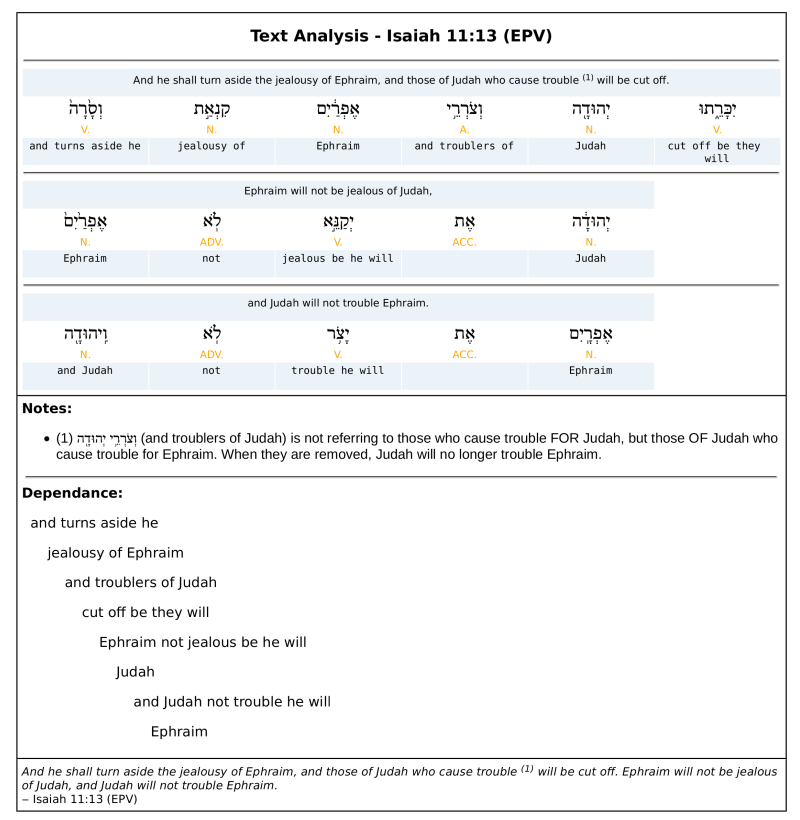When reading this verse in the past it I seemed to take it for granted that Ephraim was jealous of someone else, likely Judah, rather than being the target of other's jealousy.
The jealousy of Ephraim shall depart,
and those who harass Judah shall be cut off;
Ephraim shall not be jealous of Judah,
and Judah shall not harass Ephraim (ESV)
There is clearly an AB/AB parallelism structure in Jealousy/Harassing/Jealousy/Harassing.
But there is also a pattern of Ephraim/Judah/Ephraim to Judah/Judah to Ephraim.
Once I saw this made me question the first line. Is Ephraim being envied, rather than being envious? Because in the 3rd line Ephraim clearly is being envious, so why is the 1st line saying that?
The 2nd and 4th lines invert who is being harassed, so why wouldn't the 1st and 3rd invert who is being jealous, or who is being envied?
But I don't know Hebrew well enough and no commentaries I can find dive very deep into thus verse.
Is Ephraim being jealous, or are they the target of other's jealousy in the first phrase of Isaiah 11:13?
Said differently, Is "jealousy of Ephraim" denoting Ephraim's possession of jealousy or someone else being jealous OF Ephraim?
